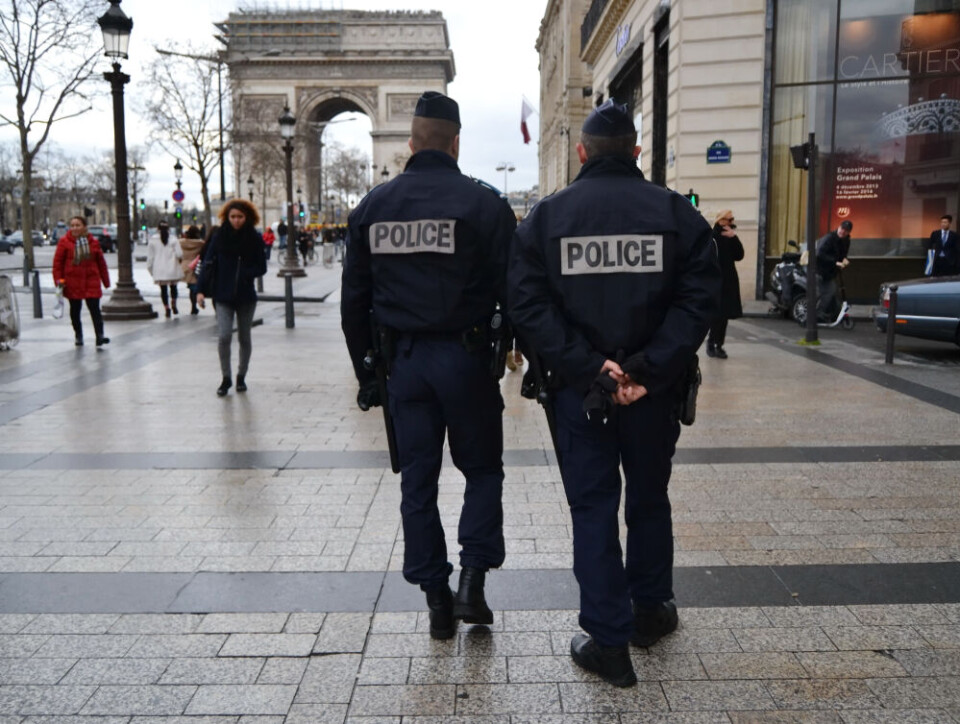-
French crisps brand gains global attention after Dua Lipa post
Singer posted photo of her shopping basket and the only food items were Brets crisps in braised chicken, honey mustard, and ‘Fromage du Jura’ flavours
-
Why supermarkets are urging shoppers to buy French leeks
Try our French classic leek vinaigrette recipe
-
New bill targets skiers under influence of alcohol or drugs
There are not currently any specific rules on skiing while under the influence
128,000 identity checks a day in France: what must foreigners show?
Around nine million drivers are stopped each year

Over 128,000 identity checks are carried out in France each day – around 47 million per year - a recent report from the Cour des comptes (French Audit Office) has revealed.
The checks are carried out by police officers and gendarmes, and include people being stopped both in public areas, such as on the street, in airports, train stations etc or whilst driving.
The report raised a number of concerns about this, including that “the typical course of an identity check has not been precisely defined nor set out in training materials for officers.”
However, the “legal framework of identity checks” and the conditions under which checks can be made is defined.
Below, we cover how this can affect non-French citizens or people on holiday in France if stopped.
For what reason can people be stopped?
Neither police officers nor gendarmes need a specific reason to stop individuals as they can carry out ‘preventative checks’ as part of general safety measures.
In addition, officers can stop you and ask to see your ID if they suspect you have committed an offence, or as part of an investigation into a specific case (in the latter, they must inform you of this).
These checks can happen in any public setting, and officers have the authority to check on those they have valid reason to believe are non-French residents (for example, those driving a vehicle with non-French plates).
There are strict rules over the duration and the location where officers can check suspected non-French people, which can be seen on the official government website.
These checks are more common in border areas, and in places with a high volume of foreign travellers (international train stations and airports).
Read more: Do police officers need reason to stop and control drivers in France?
What documentation must I show?
Short-stay visitors to France (staying for less than 90 days) who are stopped for an identity check should be able to show on request a valid passport, and a visa – unless visiting from a visa-exempt country.
The UK, US, Canada, Australia, and New Zealand amongst other countries are those with short-stay visa-free access to the Schengen area.
Any other piece of ID which may be valid in other scenarios (such as police checks in your country, or administrative tasks in France) are not listed as accepted forms of ID for short-stay visitors on the French government website.
However sources such as the US Embassy in France state driving licences and student ID cards are “usually sufficient” as valid forms of ID if you are a tourist stopped by the police.
Many anglophone foreigners on holiday who are stopped say their driving licence has been sufficient for an ID check.
However this is not the official advice from the French government, and although many police officers will accept them, it does not mean all will.
Those staying for more than 90 days, either as a permanent resident or on a temporary visa can show a valid passport, or any of the following documents:
-
A long-stay visa (visa de long séjour), valid for a maximum of one year (the shorter visa long séjour valant titre de séjour is also valid)
-
A residence permit (Carte de séjour) – this can either be a temporary (Carte de séjour temporaire) permit valid for up to one year, or a Carte de séjour pluriannuelle valid for up to four years
-
Residence permit (Carte de résident), valid for 10 years, or indefinitely
-
Retirement permit (Carte de séjour portant la mention retraité), valid for 10 years
-
Receipt for first application, renewal or duplicate residence permit (Carte de séjour)
-
Certificate of application for asylum
French citizens can show their passport or national identity cards.
An update from October 2023 on the service public site states that driving licences “do not hold the same value as a national identity card or passport” in France.
However, driving licences are listed as a valid form of ID when being stopped for checks by the police on the service public website.
Previously, Paris police have told Connexion staff that high-quality photocopies of ID documents would be accepted if people feel uncomfortable carrying around the original.
What happens if I cannot show ID on request?
If you are a visitor to France and unable to provide the correct documents, you risk being taken to a police or gendarmerie station until your identity has been verified.
Residents and citizens may be detained for up to four hours as police run checks.
However, these are ‘theoretically’ possible, and are not the most likely outcomes.
There is also the chance that if you do not provide valid ID on request, you will be asked to go to a nearby police station with your documents within the next 48 hours to prove your identity.
Related articles
Did you know? France has a team ready to defend foreigners' rights
Major delays on France-UK border in 2024, warns new Brexit report
























